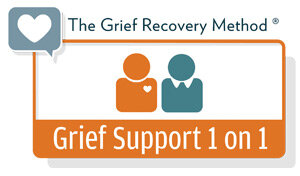
Grief is a profound and transformative experience, reshaping us in unexpected ways and revealing the resilience of our spirit.
Together, in a safe and supportive environment, we’ll explore and understand your complex feelings and thoughts around your unique grief or loss.
As your Grief Coach, I will guide you through a powerful action-based approach to reconciling and healing from life's most profound heartbreaks and finding new meaning and joy in your life.
Are you ready to discover how to smile again!


Grief is the normal and natural emotional response to loss, but...
Most of the information we’ve learned about dealing with loss is intellectual. We tend to talk about what happened, but skirt around the depth of how we truly feel about the loss (if we even know what that is).
An intellectual comment might sound like, “Don’t feel bad. You are young and can have more children...” or “They lived a long productive life...”
While these statements may be true from an intellectual standpoint, they do not address the needs of a broken heart. Grief Recovery must deal with your broken heart, which requires emotional support instead of intellectual explanations.
The Grief Recovery Institute defines grief as the conflicting feelings experienced by the change or end of a familiar pattern of behavior.
Wow! Think about all the scenarios where that can apply.
Let me give you a couple of scenarios of what this might look like...
Let’s say someone you love has been dealing with a long-term illness, and you feel relieved that their suffering has ended. That feeling is positive, even though it’s related to death. Also, at the same time, you realize you can no longer touch or talk to that person which is very painful.
These types of conflicting feelings of both relief and pain are a totally natural response to death.
What about divorce? Perhaps there is a sense of freedom from no longer battling with that person, which is a positive feeling. At the same time, you may be concerned about finding someone else who is a good provider or partner.
We can also experience intangible losses.
These might include loss of trust, loss of safety, loss of control of one’s body (physical or sexual abuse). Most of our culture and society do not recognize these losses as grief issues so they go unattended.
What happens when we don’t take care of these losses? They don’t usually get better, but tend to get worse over time as we stuff them down. Effective grief recovery must deal with your broken heart.
They tell you that “it’s time to move on” but they don’t tell you how.
Wouldn’t we move forward if we knew how to do it?
That’s where The Grief Recovery Method® comes into play. Often times, we move forward by keeping busy, staying strong for others, and letting time pass. On the surface that sounds like a decent plan. I mean that’s what I learned how to do.
Unfortunately, what it really means is staying overly busy so I can stuff down my feeling and over time try and put it behind me. That formula doesn’t really allow us to deal head-on with the emotional pain. Fast forward and something happens in your life that now triggers all of the unattended emotions that have accumulated.
There is a Solution
The Grief Recovery Institute is the foremost authority on the topic of grief.
The Grief Recovery Method ® isn’t some theory. It’s an evidence-based program, which means it has been scientifically tested and found to be helpful for those who complete the program and continue using the tools. It’s been continuously refined for 35+ years. It provides participants with a tried and true method for coping with grief.
Recovery means feeling better. It means claiming your circumstances instead of letting circumstances take over your life and happiness. Recovery means finding new meaning in living your life, absent of the fear of being hurt again.
It also means having fond memories and enjoying them without having an overwhelming sense of pain and regret. It’s knowing that it’s okay to feel sad at times and to talk about how your feel without concern about how others around you will react. Recovery is also the ability to talk about the loss you have experienced and that it is a normal and healthy thing to do.
You can heal through The Grief Recovery Method® Programs...


